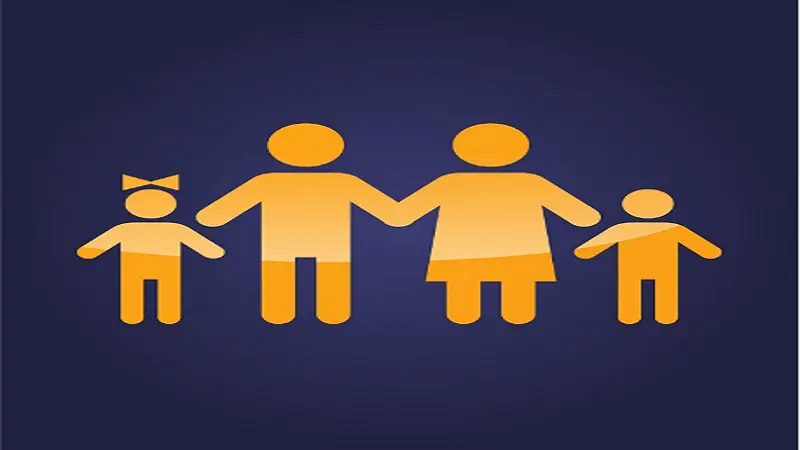Symbols have always held a significant place in human history, serving as powerful tools for communication, representation, and connection. When it comes to the concept of family, symbols can encapsulate the essence of familial bonds, traditions, and values in a way that transcends words. The symbol:z3mjablhs0w= family evokes the idea of exploring these symbolic representations and understanding their profound impact on our lives.
Understanding Symbols in the Context of Family
A symbol:z3mjablhs0w= family is a mark, sign, or object that represents an idea, quality, or relationship. In the context of family, symbols often embody the collective identity, heritage, and shared experiences of family members. These symbols can be tangible objects, like heirlooms or family crests, or intangible representations, such as traditions, rituals, and even stories passed down through generations.
Cultural Symbols of Family
Different cultures around the world have unique symbols that represent the concept of family. These symbols often carry deep meanings and reflect the values and beliefs of society. Let’s explore a few examples:
1. The Family Tree
The family tree is a universal symbol:z3mjablhs0w= family of family connections and lineage. It represents the roots and branches of a family, illustrating the relationships between generations. The tree’s roots symbolize the family’s origins, while the branches represent the various descendants. This symbol is used in many cultures to trace ancestry and honor the legacy of forebears.
2. The Celtic Knot
In Celtic culture, the intricate designs of the Celtic knot are rich with symbolism. The knots, with no beginning or end, represent eternity and the interconnectedness of life. When used in the context of family, the Celtic knot signifies the eternal bond between family members, highlighting the unbreakable connections that transcend time and space.
3. The Koru
In the Maori culture of New Zealand, the Koru, a spiral shape based on the unfurling silver fern frond, symbolizes new life, growth, strength, and peace. When associated with family, the Koru represents the nurturing of relationships and the continuity of family through generations.
4. Totem Poles
Among Indigenous peoples of North America, totem poles serve as monumental carvings that represent a clan’s lineage and heritage. Each figure on the totem pole holds significant meaning, often telling stories of ancestors, clan histories, and cultural beliefs. Totem poles are powerful symbols of family identity and community ties.
The Role of Symbols in Family Identity
Symbols play a crucial role in shaping and maintaining family identity. They serve as visual representations of a family’s history, values, and shared experiences. Here are some ways in which symbol:z3mjablhs0w= family influence family dynamics:
1. Preserving Heritage
Symbols help preserve a family’s heritage by providing tangible connections to the past. Heirlooms, such as a grandfather’s watch or a grandmother’s quilt, carry the stories and memories of previous generations. These objects become cherished symbols that link the present to the past, fostering a sense of continuity and belonging.
2. Strengthening Bonds
Family symbols can strengthen bonds among family members by fostering a sense of unity and shared identity. For example, a family crest or coat of arms can serve as a unifying symbol:z3mjablhs0w= family, reminding family members of their common ancestry and shared values. Celebrating family traditions and rituals also reinforces these bonds, creating lasting memories and reinforcing the family’s collective identity.
3. Expressing Values
Symbols allow families to express their core values and beliefs. For instance, a family may adopt a specific symbol, such as a dove representing peace or an olive branch symbolizing reconciliation, to reflect their commitment to certain principles. These symbols serve as reminders of the family’s values and guide their interactions and decisions.
Modern Interpretations of Family Symbols
In today’s diverse and interconnected world, the concept of family has evolved, and so have the symbols that represent it. Modern families are redefining traditional symbol:z3mjablhs0w= family and creating new ones that resonate with their unique experiences and identities.
1. Tattoos
Tattoos have become a popular way for individuals to express their family connection. Many people choose to get tattoos of family symbols, such as names, birthdates, or meaningful quotes, as a permanent reminder of their loved ones. These tattoos serve as personal symbol:z3mjablhs0w= family of family love and commitment.
2. Digital Symbols
In the digital age, families are also creating new symbol:z3mjablhs0w= family through social media and technology. Emojis, hashtags, and digital avatars can represent family members and their shared experiences. For example, a family might use a specific emoji combination in their group chats to symbolize their bond and create a sense of belonging.
3. Personalized Jewelry
Personalized jewelry, such as name necklaces or birthstone rings, has become a popular way to symbolize family connections. These pieces are customized to reflect the unique identities of family members and serve as wearable reminders of their love and support.
Conclusion
Symbols are powerful tools that capture the essence of family in ways that words cannot. From ancient cultural symbols to modern interpretations, these representations of family serve to preserve heritage, strengthen bonds, and express values. As we continue to navigate the complexities of family life, symbols provide a meaningful way to honor our connections and celebrate the unique tapestry of relationships that define us. Embracing and creating family symbol:z3mjablhs0w= family allows us to carry forward the legacy of our ancestors while forging new paths for future generations.
In the end, whether it’s a family crest, a cherished heirloom, or a simple emoji, symbols of family remind us of where we come from and who we are connected to. They are the threads that weave our individual stories into a collective narrative, enriching our lives with a sense of belonging and continuity.

